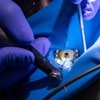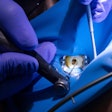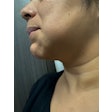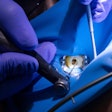
An appeals court in Colorado recently dismissed a defamation lawsuit filed against a dental patient who wrote negative online reviews about the root canal therapy she received from an endodontist, according to court records.
The Colorado Court of Appeals ruled in favor of Kathryn Sullivan, dismissing a lawsuit that Dr. Andrew Stubbs of Creekside Endodontics in Denver had filed against his former patient. Sullivan posted one-star reviews on Yelp and Google Reviews claiming that Stubbs overfilled her root canals, causing her pain and requiring additional treatment, according to the December 22, 2022, court decision.
The lawsuit was dismissed under Colorado's anti-SLAPP, or anti-strategic lawsuit against public participation, statute, which was enacted in 2019 and provides a way for meritless lawsuits arising from speech on issues of public interest to be dismissed early.
Sullivan argued that no jury could find that her reviews were posted with malice and that her online comments could not form the basis for a claim of defamation. Additionally, she backed up her case with declarations from two dentists and medical records from another.
"Plaintiffs did not show a reasonable likelihood that Sullivan made the statements related to Dr. Stubbs' dental work with actual malice," according to the decision.
In addition to dismissing the suit, the appeals court ordered Stubbs to pay Sullivan's attorney fees and costs.
Background
In July 2019, Sullivan went to Stubbs' office because of "severe pain" she was experiencing in her teeth. After an exam, he told her she had four affected teeth, including one that had an embedded metal file. Sullivan was told about treatment options, and she agreed to undergo root canal therapy on the four teeth.
During treatment, Stubbs reportedly informed her that he discovered two teeth were cracked, which reduced the likelihood of successful treatment. Nevertheless, Sullivan wanted to move forward with the surgery, according to the decision.
A few days after treatment, Sullivan complained about pain. Stubbs responded by prescribing her antibiotics, steroids, and pain medication. Sullivan left a positive review about the clinician and the practice on Yelp.
However, Sullivan's pain returned. This led her to do independent research about root canal therapy and consult with another clinician who reviewed the x-rays Stubbs had taken and noted that her root canals had been overfilled.
Since Sullivan's pain persisted, she went to Stubbs' practice again. During that visit, she underwent a cone-beam computed tomography (CBCT) scan that revealed Stubbs missed filling one of the canals of a tooth, two teeth with root canals were allegedly overfilled, and the thermoplastic filling used reportedly extended beyond one tooth.
Stubbs filled the canal he originally missed but reportedly dismissed Sullivan's concerns that the overfilling was continuing to cause her pain. Instead, he allegedly instructed her to see a neurologist, according to court documents.
A week later, Stubbs reportedly terminated his doctor-patient relationship with Sullivan, citing her "adversarial" behavior. He also denied her request for a full refund, according to the decision.
Sullivan consulted another clinician who took new CBCT images. The clinician concluded that three teeth were overfilled and one had material extruding near the sinus. The clinician also noted that there were multiple infections near these locations.
Sullivan emailed the new CBCT images to Stubbs, noting that other dentists allegedly confirmed that the overfilling was worse than expected. Stubbs reportedly repeated that he disagreed that the overfilling was causing her pain, according to court documents.
In turn, Sullivan posted a negative online review about her experiences with Stubbs and the practice. In response, Stubbs' practice sued Sullivan for defamation and trade disparagement, seeking compensatory and punitive damages.




















